SEAT Leon SP Sportstourer vs VW ID.7 - Differences and prices compared
Compare performance (272 HP vs 340 HP), boot space and price (25800 £ vs 46400 £ ) at a glance. Find out which car is the better choice for you – SEAT Leon SP Sportstourer or VW ID.7?
Costs and Efficiency:
Looking at overall running costs, both models reveal some interesting differences in everyday economy.
SEAT Leon SP Sportstourer has a convincingly advantage in terms of price – it starts at 25800 £ , while the VW ID.7 costs 46400 £ . That’s a price difference of around 20541 £.
As for electric range, the VW ID.7 performs convincingly better – achieving up to 708 km, about 577 km more than the SEAT Leon SP Sportstourer.
Engine and Performance:
Under the bonnet, it becomes clear which model is tuned for sportiness and which one takes the lead when you hit the accelerator.
When it comes to engine power, the VW ID.7 has a somewhat edge – offering 340 HP compared to 272 HP. That’s roughly 68 HP more horsepower.
In acceleration from 0 to 100 km/h, the VW ID.7 is clearly quicker – completing the sprint in 5.40 s, while the SEAT Leon SP Sportstourer takes 7.90 s. That’s about 2.50 s faster.
In terms of top speed, the SEAT Leon SP Sportstourer performs slightly better – reaching 220 km/h, while the VW ID.7 tops out at 180 km/h. The difference is around 40 km/h.
There’s also a difference in torque: VW ID.7 pulls clearly stronger with 679 Nm compared to 360 Nm. That’s about 319 Nm difference.
Space and Everyday Use:
Whether family car or daily driver – which one offers more room, flexibility and comfort?
Both vehicles offer seating for 5 people.
In curb weight, SEAT Leon SP Sportstourer is decisively lighter – 1384 kg compared to 2180 kg. The difference is around 796 kg.
In terms of boot space, the SEAT Leon SP Sportstourer offers a bit more room – 620 L compared to 532 L. That’s a difference of about 88 L.
In maximum load capacity, the SEAT Leon SP Sportstourer performs barely noticeable better – up to 1600 L, which is about 14 L more than the VW ID.7.
When it comes to payload, SEAT Leon SP Sportstourer to a small extent takes the win – 569 kg compared to 465 kg. That’s a difference of about 104 kg.
Who wins the race in the data check?
The VW ID.7 is decisively ahead in the objective data comparison.
This result only shows which model scores more points on paper – not which of the two cars feels right for you.
Costs and Consumption
View detailed analysis
Engine and Performance
View detailed analysis
Dimensions and Body
View detailed analysis
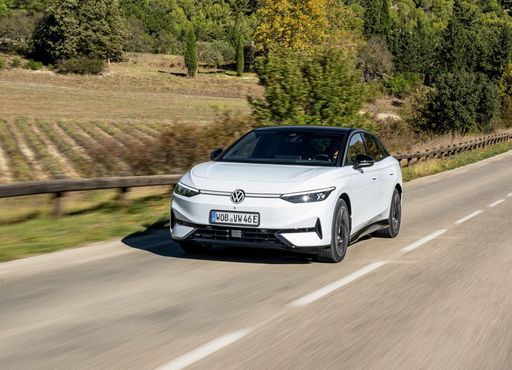
VW ID.7
SEAT Leon SP Sportstourer
The SEAT Leon Sportstourer blends sporty hatchback looks with estate practicality, giving buyers a sleek wagon that doesn't look like it's trying too hard to be sensible. Its cabin feels modern and well thought‑out, with clever storage and a driving character that keeps the journey entertaining — a smart choice for families who don't want to surrender style for space.
details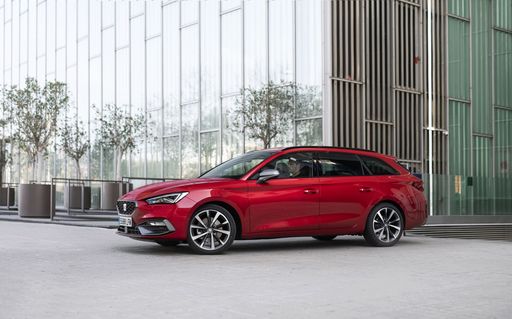
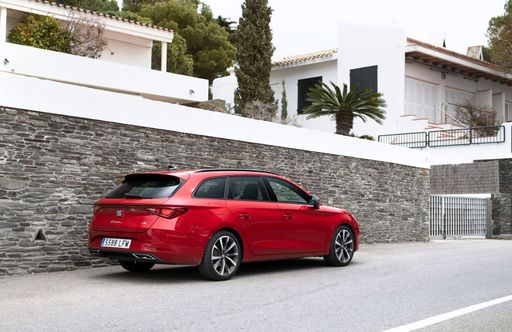
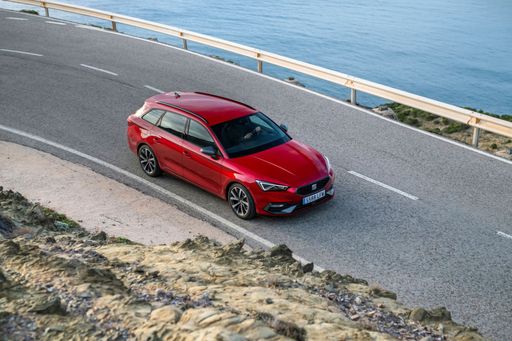
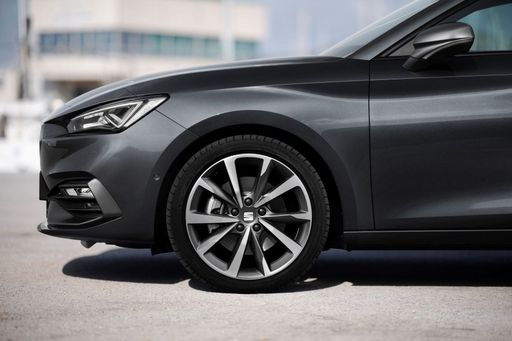
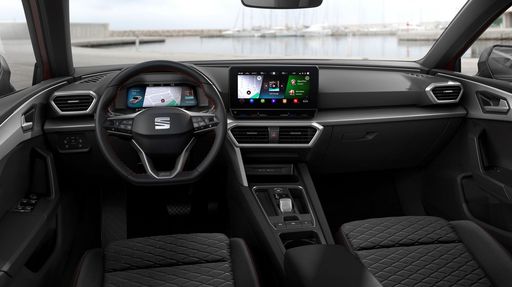
VW ID.7
VW ID.7 arrives as Volkswagen's electric grand tourer, pairing a low-slung, aerodynamic silhouette with a calm, understated interior that prioritizes comfort and space. It’s a sensible choice for buyers who want a relaxed, high-tech cruiser that covers motorway miles with poise rather than bravado.
details
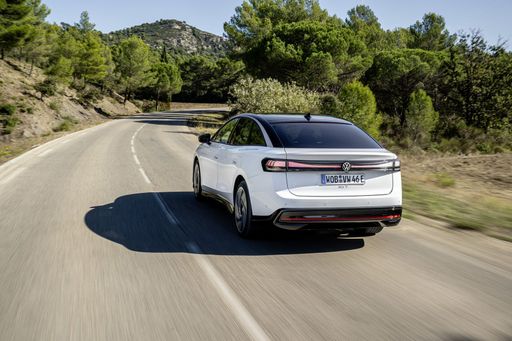
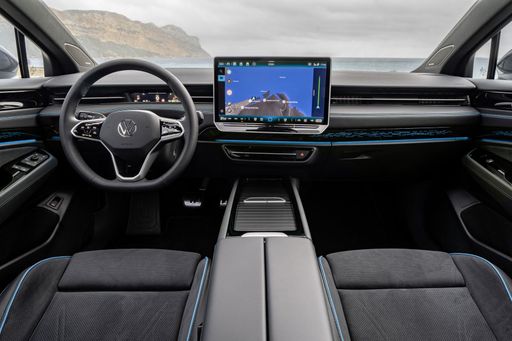
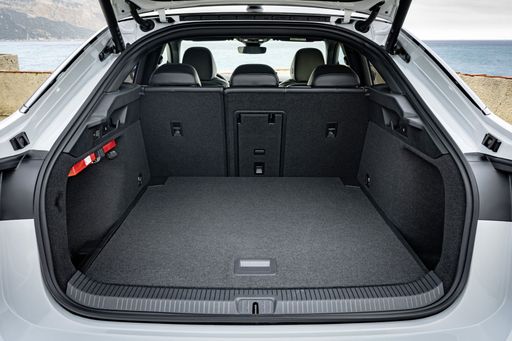
Costs and Consumption |
|
|---|---|
|
Price
25800 - 37900 £
|
Price
46400 - 54200 £
|
|
Consumption L/100km
1.2 - 5.6 L
|
Consumption L/100km
-
|
|
Consumption kWh/100km
-
|
Consumption kWh/100km
13.6 - 16.2 kWh
|
|
Electric Range
131 km
|
Electric Range
594 - 708 km
|
|
Battery Capacity
19.70 kWh
|
Battery Capacity
77 - 86 kWh
|
|
co2
28 - 128 g/km
|
co2
0 g/km
|
|
Fuel tank capacity
40 - 45 L
|
Fuel tank capacity
-
|
Dimensions and Body |
|
|---|---|
|
Body Type
Estate
|
Body Type
Hatchback
|
|
Seats
5
|
Seats
5
|
|
Doors
5
|
Doors
5
|
|
Curb weight
1384 - 1708 kg
|
Curb weight
2180 - 2325 kg
|
|
Trunk capacity
470 - 620 L
|
Trunk capacity
532 L
|
|
Length
4642 mm
|
Length
4961 mm
|
|
Width
1799 mm
|
Width
1862 mm
|
|
Height
1437 - 1456 mm
|
Height
1535 - 1536 mm
|
|
Max trunk capacity
1450 - 1600 L
|
Max trunk capacity
1586 L
|
|
Payload
422 - 569 kg
|
Payload
460 - 465 kg
|
Engine and Performance |
|
|---|---|
|
Engine Type
Petrol, Petrol MHEV, Plugin Hybrid, Diesel
|
Engine Type
Electric
|
|
Transmission
Manuel, Automatic
|
Transmission
Automatic
|
|
Transmission Detail
Manual Gearbox, Dual-Clutch Automatic
|
Transmission Detail
Reduction Gearbox
|
|
Drive Type
Front-Wheel Drive
|
Drive Type
Rear-Wheel Drive, All-Wheel Drive
|
|
Power HP
115 - 272 HP
|
Power HP
286 - 340 HP
|
|
Acceleration 0-100km/h
7.9 - 10.8 s
|
Acceleration 0-100km/h
5.4 - 6.6 s
|
|
Max Speed
197 - 220 km/h
|
Max Speed
180 km/h
|
|
Torque
220 - 360 Nm
|
Torque
545 - 679 Nm
|
|
Number of Cylinders
3 - 4
|
Number of Cylinders
-
|
|
Power kW
85 - 200 kW
|
Power kW
210 - 250 kW
|
|
Engine capacity
1498 - 1968 cm3
|
Engine capacity
-
|
General |
|
|---|---|
|
Model Year
2024 - 2026
|
Model Year
2023 - 2024
|
|
CO2 Efficiency Class
D, B
|
CO2 Efficiency Class
A
|
|
Brand
SEAT
|
Brand
VW
|
Is the SEAT Leon SP Sportstourer offered with different drivetrains?
The SEAT Leon SP Sportstourer is available as Front-Wheel Drive.
